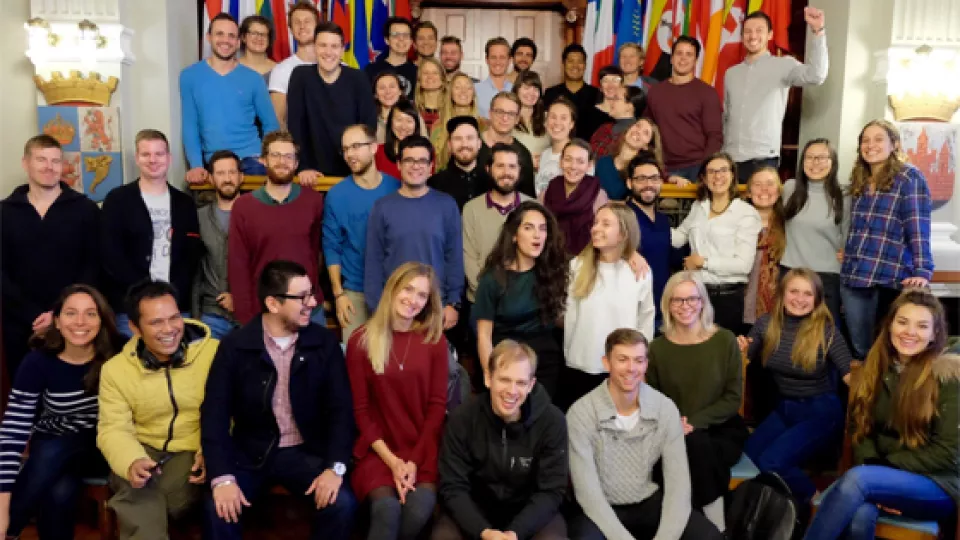Håkan Rodhe is senior lecturer at the International Institute for Industrial Environmental Economics (IIIEE) and has overtime noticed an increased interest in sustainability considerations related to the business ideas from the entrepreneurship students.
“The workshop is a perfect example of peer to peer learning, where students can pass onto each other what they have learned from their respective courses”, says Håkan Rodhe, and emphasizes that both programmes are highly competitive, action oriented and include driven students which is shown in the high energy dynamic of the workshop.
Collaboration gives industry-focused insights and inspiration
Alexandra Wu is a Master’s student of Environmental Management and Policy and was asked to comment on the idea of the business team Anouk Arts. Alexandra Wu concluded that the idea, based in the fashion industry, faces many of the challenges of today’s fashion industry, e.g. unethical labour conditions, dirty textile production, overconsumption and waste. Alexandra emphasizes the importance of integrating sustainability in entrepreneurship.
“As the business leaders of tomorrow, budding entrepreneurs should learn about sustainability concepts including lifecycle thinking, circular economy and eco-product design. In turn, environmental professionals need to strengthen business oriented thinking in order to improve their contribution to sustainable development. This exercise was a great starting point for us to integrate the two fields together”, Alexandra Wu concludes.
The Anouk Arts team appreciated the constructive and industry-focused feedback from the environmental management students.
“Their ideas and solutions provided insights we never thought about, which brought us a lot of inspiration. It would be very valuable to reconnect in the future to share knowledge and inspire each other”, says the team.
Sustainability input implemented in business models
“The entrepreneurship students recognize the duality of sustainable and societal considerations; firstly, they often have the intrinsic purpose to do good with their ideas. And secondly, they recognize that these considerations can in fact become entrepreneurial opportunities. This workshop amplifies and reinforces these considerations”, argues Craig Mitchell, lecturer at Sten K. Johnson Centre for Entrepreneurship and involved in the collaboration arrangements.
Mitchell also sees that the input from the workshop is practically implemented and makes its way into the business models and business plans of the entrepreneurship students. And the collaborations don’t end with the workshop.
“The real neat thing about the workshop is the cross fertilization of ideas between the student groups, and the students tend to self-organize continued contact”, says Craig Mitchell.
Text: Stina Johannesson


